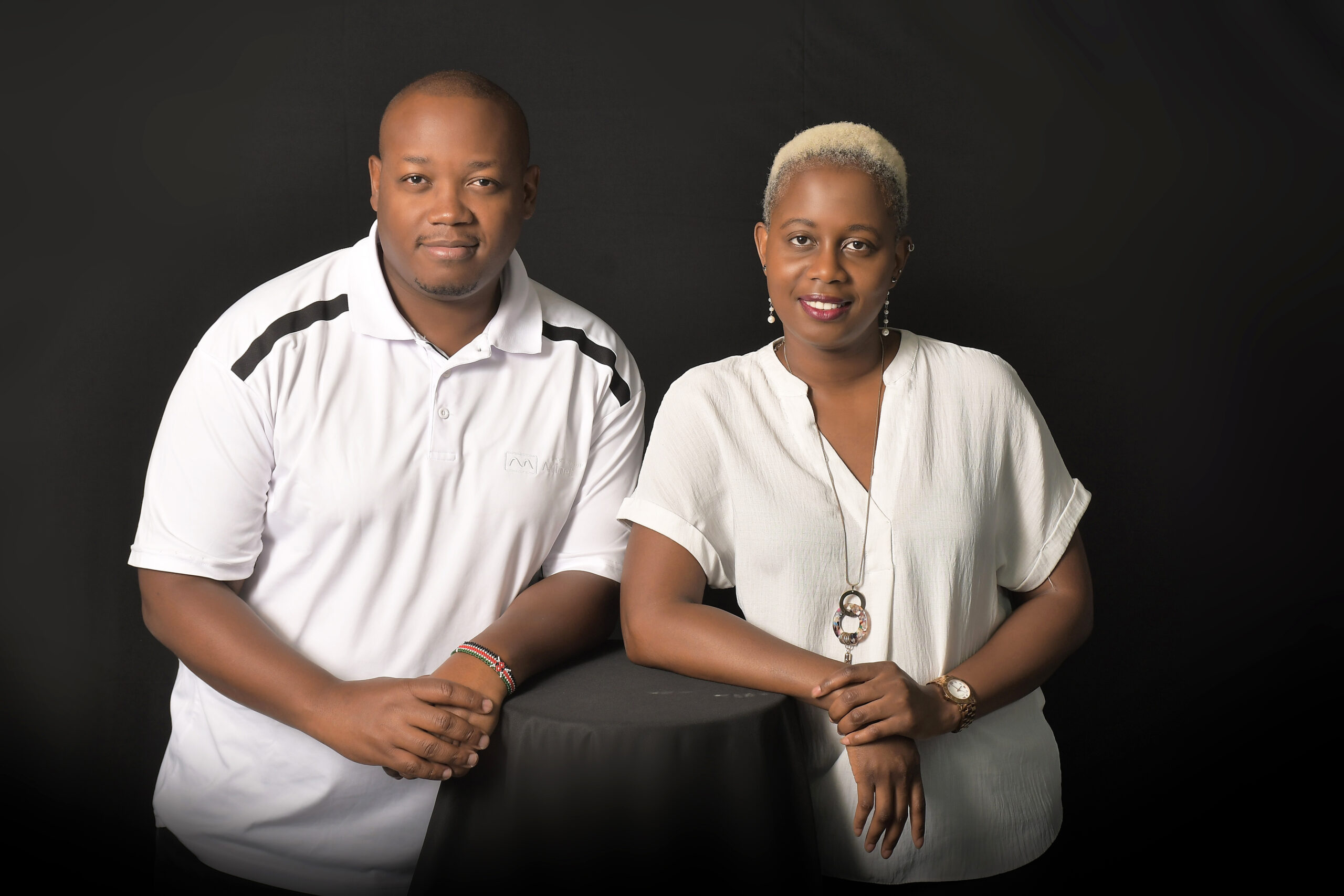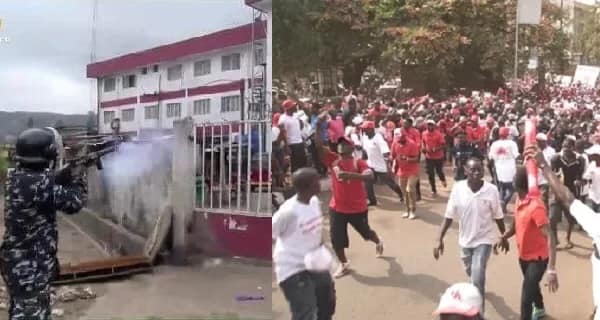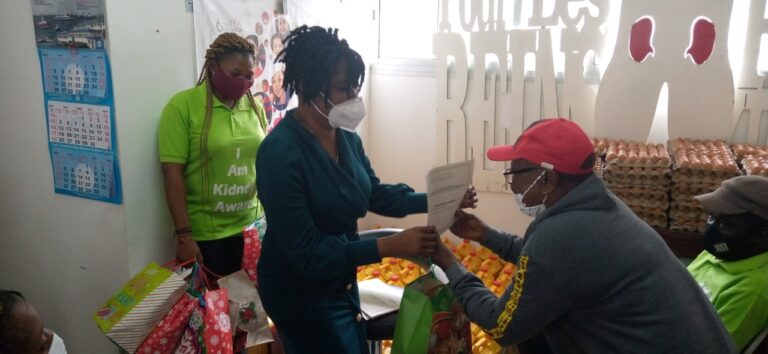Human Rights Watch calls for international inquiry into the murder of UN experts in DR Congo
February 09, 2022By Jean-Pierre Afadhali [caption id="attachment_93352" align="alignnone" width="852"] Zaida Catalán and Michael Sharp. © Instagram/Zaida Catalán; John Sharp[/caption] Human Rights Watch has called for investigations into the murder of two UN experts killed nearly four years ago while investigating violence in central Democratic Republic of Congo. This follows a recent trial that sentenced dozens of people to death over the murder that shocked the world. UN Investigators Zaida Catalán, a Swede and Michael Sharp, an American were killed investigation violence erupted in Central Kasai between government forces and local traditional groups in March 2017. Their Congolese assistants, an interpreter and motorbike drivers who accompanied them in the troubled area at the time were never seen. UN peacekeepers found the bodies UN experts two weeks after the heinous murder near the village of Bunkonde. Their Congolese interpreter, Betu Tshintela, is still missing as well as three motorbike drivers who accompanied them, Isaac Kabuayi, Pascal Nzala, and Moise (surname unknown). The global rights body on Monday issued a statement urging The United Nations, United States, and Sweden to urgently open a credible international inquiry into the killings and the role of Congolese officials. According to HRW, the alleged role of Congolese officials was never examined in a trial that the rights body termed a “sham”. “Throughout the four-year trial, the prosecution never examined who planned and ordered the killing of the UN experts,” said Thomas Fessy, senior Congo researcher at Human Rights Watch in a press statement. “The UN, US, and Sweden should acknowledge Congo’s failure to adequately investigate this crime and urgently lead a new and credible international inquiry into state responsibility for the murders.” Dozens of people have been on trial for more than four years over the killings of UN experts and the Congolese assistants. In late January a military court in Kananga sentenced to death 49 people, many in asbsentia on charges that include terrorism, murder, and the war crime of mutilation. An army officer Col. Jean de Dieu Mambweni was sentenced to 10 years in prison for disobeying orders. A local immigration officer, Thomas Nkashama, was among those sentenced to death. Two defendants were acquitted. The International rights body claims the court ignored leads that point to the involvement of senior Congolese government officials. The trial began in June 2017 before a military court in Kananga, the provincial capital, and a UN team, known as the Follow-on Mechanism, has been providing support and advice. According to HRW, violence tied to customary control over local chieftaincies erupted in the Kasai region in 2016. The conflict was linked to national political dynamics, with the Congolese army backing the leadership of people considered loyal to then-President Joseph Kabila and his political coalition, and some militia groups supporting those closer to the opposition. According to the official version of events, pro-Kamuina Nsapu armed fighters killed the pair on March 12, 2017, the day they went missing. Kabila’s government initially blamed the Kamuina Nsapu militia for the murders of Catalán and Sharp, but according to HRW” mounting evidence has pointed to the role of high-level state officials, including through reporting by Radio France Internationale (RFI) and Reuters.” Meanwhile, HRW has opposed the death penalty given to the convicts in the judgement delivered in late January citing its inherent cruelty. Despite president’s Felix Tshisekedi pledge to Human Rights Watch, senior US officials and others that the truth in the gruesome murder was uncovered that those most responsible for the killings would be held to account, HRW said that the trial showed that Congo’s judiciary failed to provide real justice in this case. “The Kananga trial was marked by slow proceedings, and was suspended between March and October 2020 due to the Covid-19 pandemic.” Noted the American organization “With the support of the US and Sweden, UN Secretary-General Antonio Guterres should use his authority to open a full-scale international investigation, pursuing leads until all avenues are exhausted,” Human Rights Watch said on Monday.
Zaida Catalán and Michael Sharp. © Instagram/Zaida Catalán; John Sharp[/caption] Human Rights Watch has called for investigations into the murder of two UN experts killed nearly four years ago while investigating violence in central Democratic Republic of Congo. This follows a recent trial that sentenced dozens of people to death over the murder that shocked the world. UN Investigators Zaida Catalán, a Swede and Michael Sharp, an American were killed investigation violence erupted in Central Kasai between government forces and local traditional groups in March 2017. Their Congolese assistants, an interpreter and motorbike drivers who accompanied them in the troubled area at the time were never seen. UN peacekeepers found the bodies UN experts two weeks after the heinous murder near the village of Bunkonde. Their Congolese interpreter, Betu Tshintela, is still missing as well as three motorbike drivers who accompanied them, Isaac Kabuayi, Pascal Nzala, and Moise (surname unknown). The global rights body on Monday issued a statement urging The United Nations, United States, and Sweden to urgently open a credible international inquiry into the killings and the role of Congolese officials. According to HRW, the alleged role of Congolese officials was never examined in a trial that the rights body termed a “sham”. “Throughout the four-year trial, the prosecution never examined who planned and ordered the killing of the UN experts,” said Thomas Fessy, senior Congo researcher at Human Rights Watch in a press statement. “The UN, US, and Sweden should acknowledge Congo’s failure to adequately investigate this crime and urgently lead a new and credible international inquiry into state responsibility for the murders.” Dozens of people have been on trial for more than four years over the killings of UN experts and the Congolese assistants. In late January a military court in Kananga sentenced to death 49 people, many in asbsentia on charges that include terrorism, murder, and the war crime of mutilation. An army officer Col. Jean de Dieu Mambweni was sentenced to 10 years in prison for disobeying orders. A local immigration officer, Thomas Nkashama, was among those sentenced to death. Two defendants were acquitted. The International rights body claims the court ignored leads that point to the involvement of senior Congolese government officials. The trial began in June 2017 before a military court in Kananga, the provincial capital, and a UN team, known as the Follow-on Mechanism, has been providing support and advice. According to HRW, violence tied to customary control over local chieftaincies erupted in the Kasai region in 2016. The conflict was linked to national political dynamics, with the Congolese army backing the leadership of people considered loyal to then-President Joseph Kabila and his political coalition, and some militia groups supporting those closer to the opposition. According to the official version of events, pro-Kamuina Nsapu armed fighters killed the pair on March 12, 2017, the day they went missing. Kabila’s government initially blamed the Kamuina Nsapu militia for the murders of Catalán and Sharp, but according to HRW” mounting evidence has pointed to the role of high-level state officials, including through reporting by Radio France Internationale (RFI) and Reuters.” Meanwhile, HRW has opposed the death penalty given to the convicts in the judgement delivered in late January citing its inherent cruelty. Despite president’s Felix Tshisekedi pledge to Human Rights Watch, senior US officials and others that the truth in the gruesome murder was uncovered that those most responsible for the killings would be held to account, HRW said that the trial showed that Congo’s judiciary failed to provide real justice in this case. “The Kananga trial was marked by slow proceedings, and was suspended between March and October 2020 due to the Covid-19 pandemic.” Noted the American organization “With the support of the US and Sweden, UN Secretary-General Antonio Guterres should use his authority to open a full-scale international investigation, pursuing leads until all avenues are exhausted,” Human Rights Watch said on Monday.






 Zaida Catalán and Michael Sharp. © Instagram/Zaida Catalán; John Sharp[/caption] Human Rights Watch has called for investigations into the murder of two UN experts killed nearly four years ago while investigating violence in central Democratic Republic of Congo. This follows a recent trial that sentenced dozens of people to death over the murder that shocked the world. UN Investigators Zaida Catalán, a Swede and Michael Sharp, an American were killed investigation violence erupted in Central Kasai between government forces and local traditional groups in March 2017. Their Congolese assistants, an interpreter and motorbike drivers who accompanied them in the troubled area at the time were never seen. UN peacekeepers found the bodies UN experts two weeks after the heinous murder near the village of Bunkonde. Their Congolese interpreter, Betu Tshintela, is still missing as well as three motorbike drivers who accompanied them, Isaac Kabuayi, Pascal Nzala, and Moise (surname unknown). The global rights body on Monday issued a statement urging The United Nations, United States, and Sweden to urgently open a credible international inquiry into the killings and the role of Congolese officials. According to HRW, the alleged role of Congolese officials was never examined in a trial that the rights body termed a “sham”. “Throughout the four-year trial, the prosecution never examined who planned and ordered the killing of the UN experts,” said Thomas Fessy, senior Congo researcher at Human Rights Watch in a press statement. “The UN, US, and Sweden should acknowledge Congo’s failure to adequately investigate this crime and urgently lead a new and credible international inquiry into state responsibility for the murders.” Dozens of people have been on trial for more than four years over the killings of UN experts and the Congolese assistants. In late January a military court in Kananga sentenced to death 49 people, many in asbsentia on charges that include terrorism, murder, and the war crime of mutilation. An army officer Col. Jean de Dieu Mambweni was sentenced to 10 years in prison for disobeying orders. A local immigration officer, Thomas Nkashama, was among those sentenced to death. Two defendants were acquitted. The International rights body claims the court ignored leads that point to the involvement of senior Congolese government officials. The trial began in June 2017 before a military court in Kananga, the provincial capital, and a UN team, known as the Follow-on Mechanism, has been providing support and advice. According to HRW, violence tied to customary control over local chieftaincies erupted in the Kasai region in 2016. The conflict was linked to national political dynamics, with the Congolese army backing the leadership of people considered loyal to then-President Joseph Kabila and his political coalition, and some militia groups supporting those closer to the opposition. According to the official version of events, pro-Kamuina Nsapu armed fighters killed the pair on March 12, 2017, the day they went missing. Kabila’s government initially blamed the Kamuina Nsapu militia for the murders of Catalán and Sharp, but according to HRW” mounting evidence has pointed to the role of high-level state officials, including through reporting by Radio France Internationale (RFI) and Reuters.” Meanwhile, HRW has opposed the death penalty given to the convicts in the judgement delivered in late January citing its inherent cruelty. Despite president’s Felix Tshisekedi pledge to Human Rights Watch, senior US officials and others that the truth in the gruesome murder was uncovered that those most responsible for the killings would be held to account, HRW said that the trial showed that Congo’s judiciary failed to provide real justice in this case. “The Kananga trial was marked by slow proceedings, and was suspended between March and October 2020 due to the Covid-19 pandemic.” Noted the American organization “With the support of the US and Sweden, UN Secretary-General Antonio Guterres should use his authority to open a full-scale international investigation, pursuing leads until all avenues are exhausted,” Human Rights Watch said on Monday.
Zaida Catalán and Michael Sharp. © Instagram/Zaida Catalán; John Sharp[/caption] Human Rights Watch has called for investigations into the murder of two UN experts killed nearly four years ago while investigating violence in central Democratic Republic of Congo. This follows a recent trial that sentenced dozens of people to death over the murder that shocked the world. UN Investigators Zaida Catalán, a Swede and Michael Sharp, an American were killed investigation violence erupted in Central Kasai between government forces and local traditional groups in March 2017. Their Congolese assistants, an interpreter and motorbike drivers who accompanied them in the troubled area at the time were never seen. UN peacekeepers found the bodies UN experts two weeks after the heinous murder near the village of Bunkonde. Their Congolese interpreter, Betu Tshintela, is still missing as well as three motorbike drivers who accompanied them, Isaac Kabuayi, Pascal Nzala, and Moise (surname unknown). The global rights body on Monday issued a statement urging The United Nations, United States, and Sweden to urgently open a credible international inquiry into the killings and the role of Congolese officials. According to HRW, the alleged role of Congolese officials was never examined in a trial that the rights body termed a “sham”. “Throughout the four-year trial, the prosecution never examined who planned and ordered the killing of the UN experts,” said Thomas Fessy, senior Congo researcher at Human Rights Watch in a press statement. “The UN, US, and Sweden should acknowledge Congo’s failure to adequately investigate this crime and urgently lead a new and credible international inquiry into state responsibility for the murders.” Dozens of people have been on trial for more than four years over the killings of UN experts and the Congolese assistants. In late January a military court in Kananga sentenced to death 49 people, many in asbsentia on charges that include terrorism, murder, and the war crime of mutilation. An army officer Col. Jean de Dieu Mambweni was sentenced to 10 years in prison for disobeying orders. A local immigration officer, Thomas Nkashama, was among those sentenced to death. Two defendants were acquitted. The International rights body claims the court ignored leads that point to the involvement of senior Congolese government officials. The trial began in June 2017 before a military court in Kananga, the provincial capital, and a UN team, known as the Follow-on Mechanism, has been providing support and advice. According to HRW, violence tied to customary control over local chieftaincies erupted in the Kasai region in 2016. The conflict was linked to national political dynamics, with the Congolese army backing the leadership of people considered loyal to then-President Joseph Kabila and his political coalition, and some militia groups supporting those closer to the opposition. According to the official version of events, pro-Kamuina Nsapu armed fighters killed the pair on March 12, 2017, the day they went missing. Kabila’s government initially blamed the Kamuina Nsapu militia for the murders of Catalán and Sharp, but according to HRW” mounting evidence has pointed to the role of high-level state officials, including through reporting by Radio France Internationale (RFI) and Reuters.” Meanwhile, HRW has opposed the death penalty given to the convicts in the judgement delivered in late January citing its inherent cruelty. Despite president’s Felix Tshisekedi pledge to Human Rights Watch, senior US officials and others that the truth in the gruesome murder was uncovered that those most responsible for the killings would be held to account, HRW said that the trial showed that Congo’s judiciary failed to provide real justice in this case. “The Kananga trial was marked by slow proceedings, and was suspended between March and October 2020 due to the Covid-19 pandemic.” Noted the American organization “With the support of the US and Sweden, UN Secretary-General Antonio Guterres should use his authority to open a full-scale international investigation, pursuing leads until all avenues are exhausted,” Human Rights Watch said on Monday. 

























